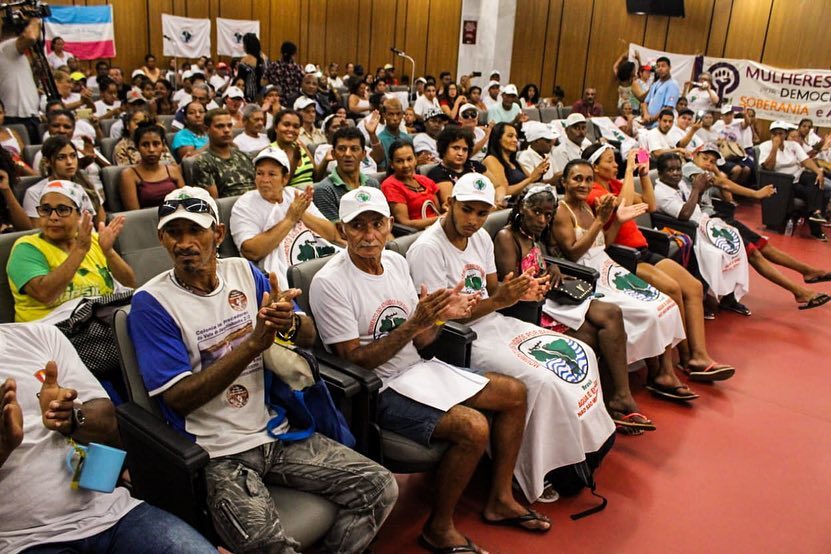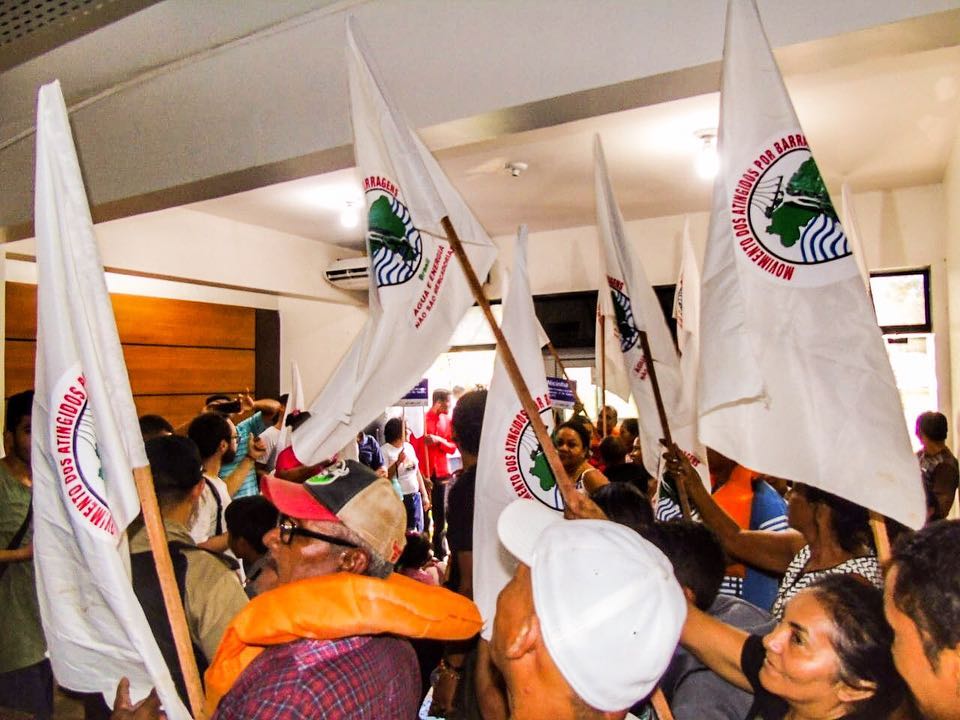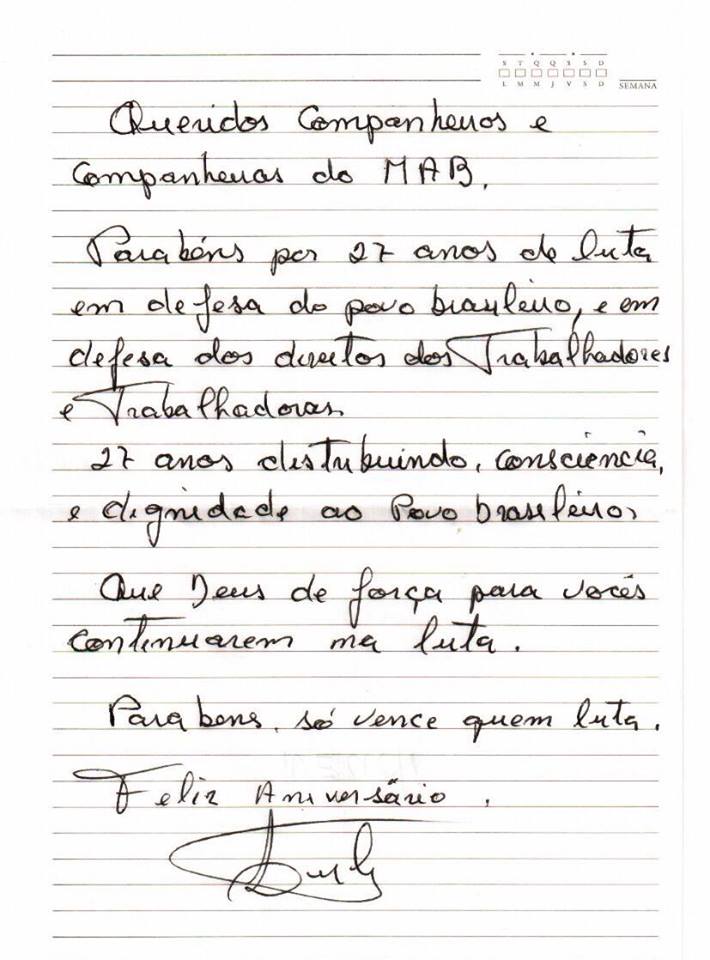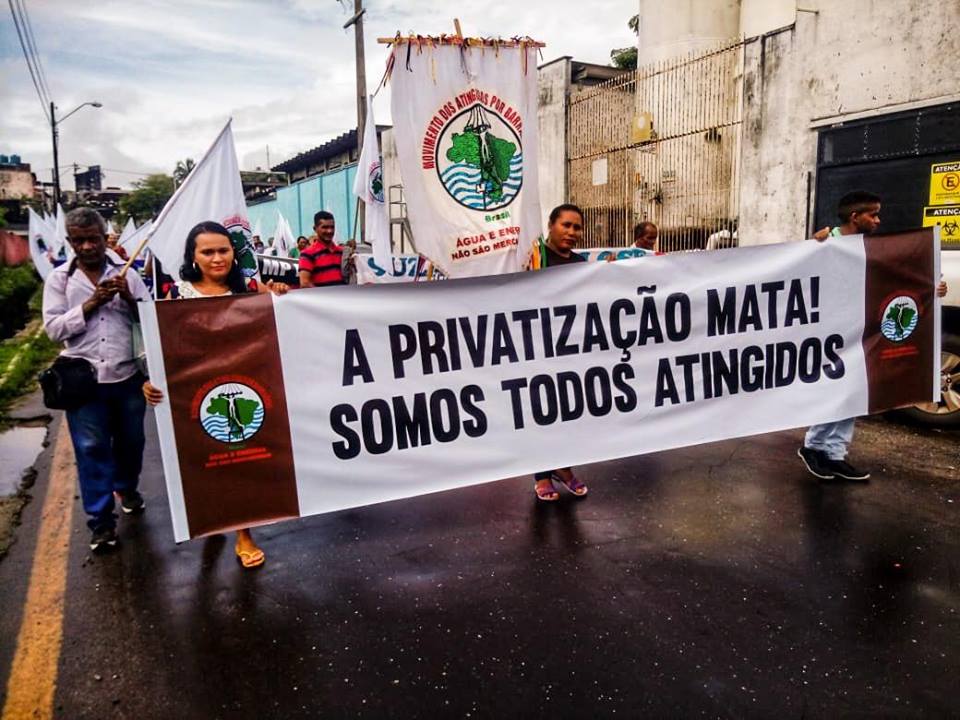More than half of Brazil’s landmass (61%) consists of the Amazon rainforests. The Amazon is home to one fifth of the world’s fresh water, as well as all sorts of minerals and resources. These, for decades, have been coveted and exploited by private, transnational interests, robbing Brazilians of their country’s wealth. March 14, the international day of struggle of people affected by dams, and in defense of rivers, water and life, is just one of the days that commemorates the struggles led by Brazilians against this exploitation and for their right to autonomy over their lands.

This day is also when the Movement of People Affected by Dams (MAB) was created 27 years ago, as a way to organize Brazilians impacted by the construction of dams. MAB brings together people at the grassroots level to speak out against the displacement and environmental destruction caused by dams, and mobilize against the fact that most of these dams aid mining and other such operations, and are not beneficial in any way to the local population. The minerals and metals mined out are not even used by Brazilians. Most of these are exported and processed in other countries, and have to then be imported back.
These mining and dam operations have, in fact, caused a huge amount of damage and destruction. In the last three years alone, Brazil has seen the collapse of two dams, claiming a total of 161 lives with hundreds missing, and causing irreversible damage to the environment. Both these collapses occurred in the state of Minas Gerais, and the same company, Vale, was responsible for the construction of both the dams.
It is against such dangerous operations, and their right to fair settlements in case of loss of lives and property that the people of Brazil started mobilizing. But the struggle became bigger than the issue of paying reparations when the people started fighting for their right to be included in the energy policy making process.
Today, MAB has a large network of people spread throughout the country who have been affected by the construction of dams in one way or another, and not been included in the decision making process, or received any benefits from the construction of dams.
March 14 saw various mobilizations in different parts of the country to mark the day.

In the state of Minas Gerais, where both the dam collapses occurred, hundred of people marched to the 12th Federal Court of Justice in Belo Horizonte on March 13. The next day, there was a public hearing at the Minas Gerais Legislative Assembly, where a document was released with the demands of the affected people. One of the primary demands was the passing of Bill 3.312/16 which declares the State Policy of People Affected by Dams and Other Enterprises (PEAB).
The bill specifies the rights of people affected by dams, defines the kinds of reparations they are eligible for, and also attempts to bring in the people in the decision making process.

In Brasilia, a cooperation agreement was signed with the Federal Prosecutor’s Office for Citizens’ Rights. Other public hearings and meetings were also held to discuss dam safety and emphasize on the need for people’s participation.
There were marches and demonstrations in the states of Pará, Maranhão, Rondônia, among other places.

The threats to Brazil’s resources going into private hands are now even higher with Jair Bolsonaro coming into power, and the mining lobby being at its strongest in the government. Bolsonaro had publicly said in his campaign speeches that he plans to remove regulations that hinder development and extraction of resources from the Amazon. In fact, just a couple of weeks ago, during the Carnival celebrations, Brazil’s new Minister of Mines and Energy Admiral Bento Albuquerque, announced plans that severely undermine the rights of the Indigenous people over their land.
According to Brazil’s constitution, Indigenous people have the first right over their land and the resources on that land, and no construction or development activity can take place on any indigenous lands without their permission. However, if these new plans come to fruition, indigenous people will lose their veto in deciding the fate of their land.
The activities on March 14 also marked the first death anniversary of Marielle Franco, the Brazilian councilwoman and human rights defender who was shot dead one year ago.
Brazil’s former president Lula de Silva, who is unjustly being kept behind bars on trumped up charges, sent a letter to the people in MAB congratulating them on completing 27 years:

Dear comrades of MAB,
Congratulations on 27 years of working for the conscience and dignity of the Brazilian people.
I hope that god gives you strength to continue in the struggle.
Congratulations, you all can defeat any battle.
Happy anniversary,
Lula





